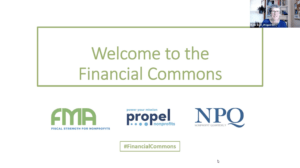
November 9th, 2017; Houston Chronicle
A new study by two Texas nonprofit advocacy groups, the Center for Public Policy Priorities and RAISE Texas, calls on businesses to offer financial education for their employees.
The need for financial education is great. Some educational efforts exist, but they are not sufficient. The study authors note that “67 percent of Texans fail a nationally assessed basic financial literacy quiz.” The results of this lack of financial literacy are not positive for either workers or their families. As Chris Tomlinson writes in the Houston Chronicle, “About half of all Texans do not have savings accounts, and 60 percent have subprime credit scores.” CNBC quotes BankRate,com saying about 57 million Americans have no savings at all. Tomlinson also notes elsewhere, “About 19.9 percent of American families… still use payday lenders, pawn shops or check-cashing stores for their financial needs…[which] represents a huge drag on the ability of these families to break out of the poverty trap.”
Among the study recommendations, Tomlinson emphasizes the following:
Sign up for our free newsletters
Subscribe to NPQ's newsletters to have our top stories delivered directly to your inbox.
By signing up, you agree to our privacy policy and terms of use, and to receive messages from NPQ and our partners.
- Make sure that new employees understand all of their potential benefits, including retirement plans. Employers should automatically enroll workers in retirement plans and only allow them to opt-out after explaining what they are giving up.
- Explain that new employees should split their paycheck between a checking and a savings account. Employees are more likely to build up a financial cushion if the money is not readily accessible.
- Bring in an outside financial coach, such as non-profit counselors from Goodwill, to offer individual advice to each new employee. This may be the first time a worker has had access to professional advice on managing money.
- Let the employee know about the dozens of free resources available to learn more from, including government agencies like the Federal Reserve and non-profit groups like the United Way.
- Offer annual financial check-ups for employees to help them obtain their financial goals. Constant reinforcement is necessary for a life-long behavioral change.
The report itself also recommends that businesses intercede with lending programs of their own to keep their employees from succumbing to debt traps that often result from payday lenders that charge interest rates estimated by the Center for Responsible Lending to average 391 percent on an annualized basis. As of 2014, the fees and interest charged at payday loan and pawn shops nationally was estimated to total $89 billion.
The report recommends,
Texas employers can help meet the short-term credit needs of their employees by offering reasonably-priced small dollar loans. One example of an employer-based small-dollar loan program is the Community Loan Center Small Dollar Loan Program (CLC) administered through local nonprofits in different parts of Texas. There are an expanding number of CLC locations, including in the Rio Grande Valley, Dallas, Austin, Brazos Valley, Houston, Heart of Texas, East Texas and the CLC of Texas which partners with employers in areas that do not have a local CLC yet.
The data also indicates that not only is financial literacy a low-cost intervention for businesses, but the outcomes can actually be beneficial to employers. Tomlinson reports that the researchers found that “Employer-based financial wellness programs can be implemented into the workplace at low or minimal cost. They are a unique benefit that help attract and retain employees, reduce employees’ financial stress and support employees’ financial stability.”—Steve Dubb













